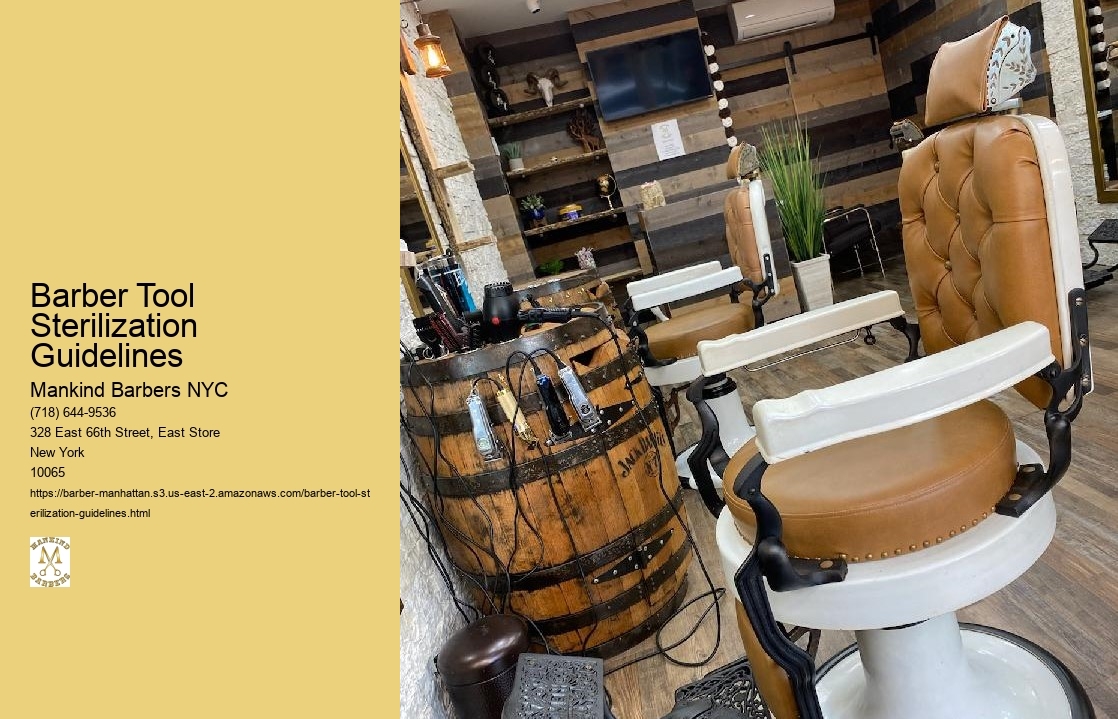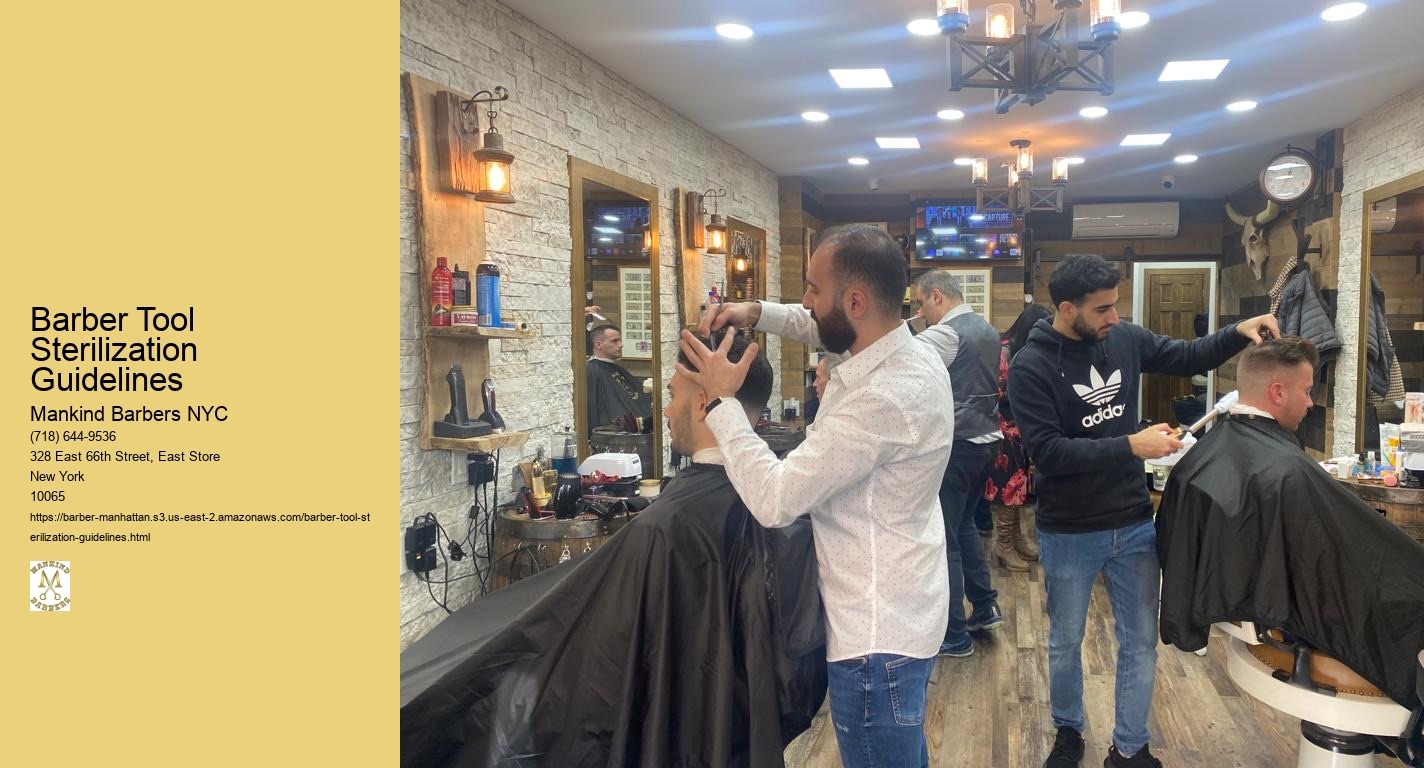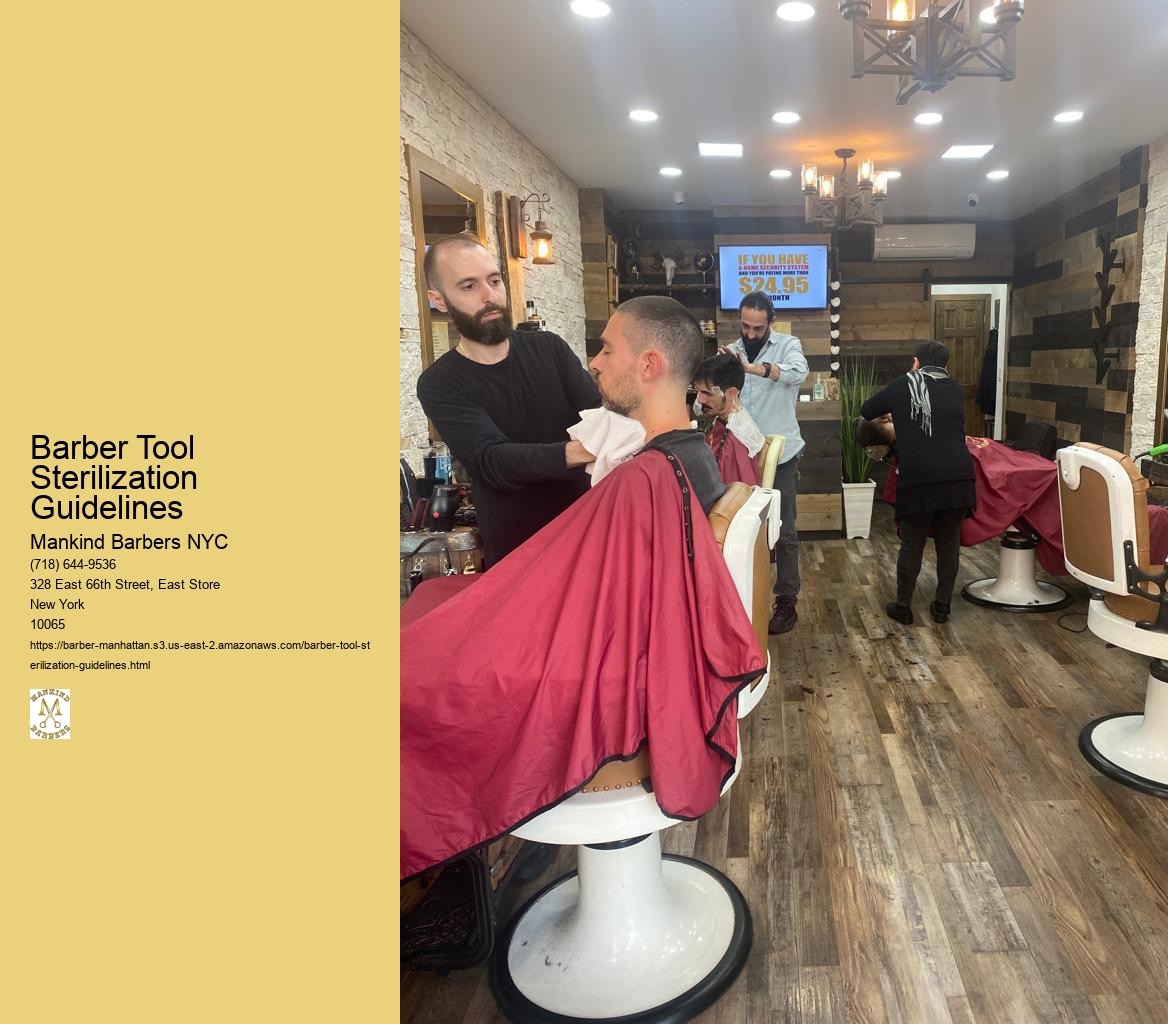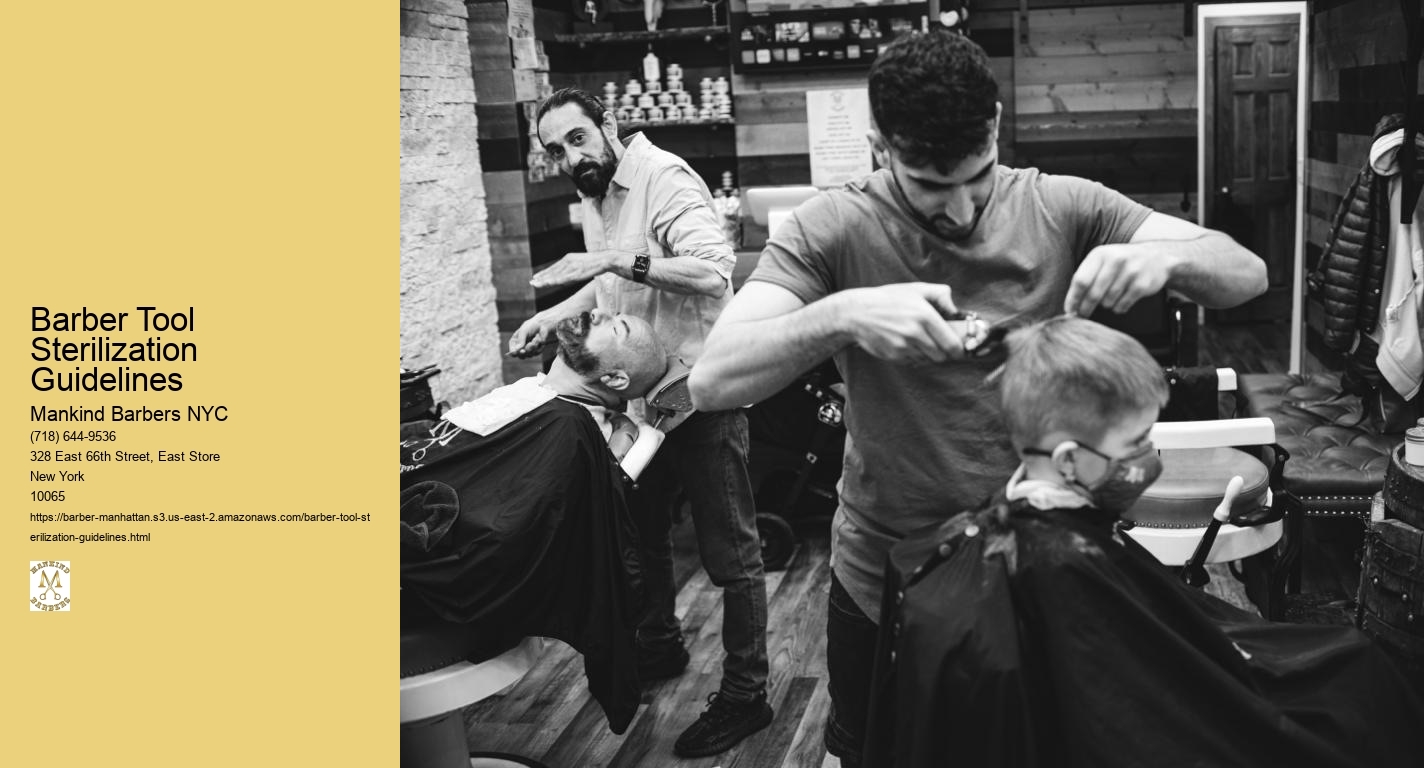

To ensure client safety and hygiene, it is crucial for barbers to adhere to recommended sterilization guidelines for their tools. The industry standard for sterilizing barber tools involves a multi-step process that includes cleaning, disinfecting, and sterilizing. Cleaning involves removing any visible debris or hair from the tools, while disinfecting eliminates most microorganisms. Sterilization, which is typically achieved through heat or chemical methods, ensures the complete elimination of all microorganisms, including bacteria, viruses, and fungi, from the tools.
According to industry standards and regulations, barber tools should be sterilized after each use to meet hygiene and safety requirements. Hair Vitamins and Supplements for Men This frequent sterilization schedule helps prevent the spread of infections and ensures that clients are not exposed to any potential health risks. Additionally, regular sterilization of tools is essential for maintaining a professional and hygienic environment in the barbershop.
Different types of barber tools, such as clippers, scissors, and razors, require specific sterilization methods to ensure effectiveness. For clippers and scissors, heat sterilization using an autoclave or dry heat sterilizer is recommended. On the other hand, razors can be sterilized using chemical solutions such as alcohol or barbicide. It is important to follow the manufacturer's guidelines for each tool and use the appropriate sterilization method to achieve optimal results.
Hair Wax for Men
When it comes to sterilizing barber tools, there are specific products and solutions that are recommended for use. Barbicide is a popular disinfectant solution that is effective in sterilizing tools such as combs, brushes, and razors. It is important to dilute the solution according to the manufacturer's instructions and immerse the tools for the recommended duration to ensure proper sterilization. Hair Heat Protection Products for Men Additionally, using disposable razor blades can also help maintain hygiene standards.
Not following proper sterilization guidelines for barber tools in a professional setting can lead to severe consequences. Hair Growth Products for Men This includes the risk of spreading infections and diseases among clients, which can damage the reputation of the barbershop and lead to legal repercussions. Furthermore, failure to adhere to sterilization standards can result in health code violations and potential closure of the establishment, impacting the livelihood of the barbers and the overall business.

In addition to standard guidelines, there are industry best practices and additional measures that can be taken to enhance the sterilization of barber tools. Implementing a strict cleaning and sterilization routine, using disposable tools when possible, and regularly inspecting and maintaining equipment can further improve hygiene standards. Barbers can also consider investing in advanced sterilization equipment and staying updated on the latest advancements in sterilization practices to ensure the highest level of safety and hygiene for their clients.
Barbers can ensure that their sterilization processes comply with health and safety regulations by staying informed and utilizing available resources. This includes regularly checking for updates from health departments, industry associations, and regulatory bodies regarding sterilization guidelines and best practices. Hair Clippers and Trimmers Additionally, attending training sessions, workshops, and seminars on sterilization techniques can provide valuable insights and keep barbers updated on any changes or advancements in sterilization practices. By staying proactive and informed, barbers can maintain a safe and hygienic environment for their clients while complying with industry regulations.

Certainly! For men with eczema-prone scalp, it's essential to opt for sulfate-free shampoos that are gentle and soothing. Look for products that are specifically formulated for sensitive skin and scalp, as well as those that contain natural ingredients such as aloe vera, tea tree oil, or chamomile, which can help to calm and nourish the scalp. Additionally, consider shampoos that are labeled as hypoallergenic and fragrance-free to minimize the risk of irritation. Some popular sulfate-free shampoo brands for eczema-prone scalp include Aveeno, Cetaphil, and Vanicream. These products are designed to cleanse the hair and scalp without stripping away natural oils or causing further irritation, making them ideal choices for individuals with sensitive skin conditions.
When selecting a hair serum for men with split ends, it's important to look for products specifically formulated to target this issue. Opt for serums that contain nourishing ingredients such as argan oil, coconut oil, or keratin, as these can help to repair and strengthen the hair shaft. Look for serums that are designed to provide heat protection, as excessive heat styling can contribute to split ends. Additionally, consider products that offer moisturizing and smoothing properties to help tame frizz and prevent further damage. It's also beneficial to choose a serum that is lightweight and non-greasy to avoid weighing down the hair. Reading customer reviews and seeking recommendations from professionals can also help in making an informed decision.
For men dealing with psoriasis on their scalp, it's essential to find a shampoo that offers soothing relief while effectively managing the condition. Look for shampoos containing ingredients such as coal tar, salicylic acid, ketoconazole, zinc pyrithione, or selenium sulfide, as these have been shown to help alleviate the symptoms of psoriasis. Additionally, seek out products that are specifically formulated for sensitive or irritated scalps, as they often contain gentle, non-irritating ingredients like aloe vera, tea tree oil, or colloidal oatmeal. It's also beneficial to choose shampoos that are fragrance-free and hypoallergenic to minimize the risk of further irritation. When selecting a scalp-soothing shampoo, it's important to prioritize products that are dermatologist-recommended and have undergone clinical testing to ensure their efficacy and safety for psoriasis-prone skin.
Yes, there are specific hair creams designed for men with coiled afro-textured hair. These hair creams are formulated to provide moisture, definition, and manageability for tightly coiled or kinky hair textures. They often contain ingredients such as shea butter, coconut oil, argan oil, and other natural emollients to nourish and hydrate the hair. Additionally, these hair creams may also include ingredients like glycerin, aloe vera, and silk proteins to help with moisture retention and frizz control. Some products may also incorporate styling agents to help enhance curl definition and provide hold without stiffness. When selecting a hair cream for coiled afro-textured hair, it's important to look for products that cater to the specific needs of this hair type, such as intense hydration, curl definition, and frizz control.
For men with dry and brittle beard hair, it is essential to use nourishing and hydrating hair treatments to restore moisture and improve the overall condition of the beard. Look for beard oils, balms, and conditioners that contain ingredients such as argan oil, jojoba oil, shea butter, and coconut oil, as these are known for their moisturizing and nourishing properties. Additionally, products with vitamin E, aloe vera, and essential oils like cedarwood and sandalwood can help to strengthen and soften the beard hair. Regular use of these treatments can help to improve the texture and manageability of the beard, leaving it looking healthy and well-groomed.
Yes, there are specialized hair clays designed specifically for men with textured crop hairstyles. These clays are formulated to provide a strong hold and matte finish, ideal for creating and maintaining the tousled, textured look that is characteristic of crop hairstyles. They often contain ingredients such as kaolin, bentonite, or beeswax to add volume, texture, and definition to the hair, while still allowing for flexibility and natural movement. Additionally, these clays may also include nourishing elements like argan oil or shea butter to help condition and protect the hair, ensuring it remains healthy and manageable. When selecting a hair clay for a textured crop hairstyle, it's important to look for products that cater to the specific needs of this style, offering the right balance of hold, texture, and flexibility for a polished yet effortless look.